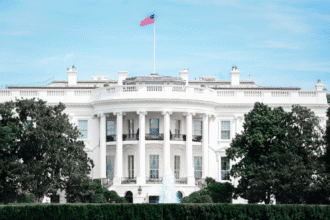To resolve a Google lawsuit claiming white and Asian employees enjoyed superior pay and job prospects than workers from other ethnic backgrounds, Google has agreed to pay $28 million (£21.5 million. Originally brought in 2021 by former Google employee Ana Cantu, the complaint claimed that workers from Hispanic, Latino, Native American, and other underrepresented groups started on lower incomes and job levels than their white and Asian colleagues.
The behemoth in technology admitted it had “resolved” but vehemently refuted the accusations against it. Judge Charles Adams of the Santa Clara County Superior Court in California approved the settlement.
Legal experts speculate that Google’s decision to settle might have been influenced by the possible harm to its reputation and continuous legal expenses. Reaching a consensus helps Google avoid a protracted legal fight that may have exposed its hiring practices and internal pay standards under closer inspection. Although they do not mean a confession of guilt, settlements usually show a company’s eagerness to settle conflicts without more escalation.
Against Google, what were the accusations?
The Google case sprang from a leaked internal document purportedly displaying differences in pay for workers doing comparable tasks. Cantu’s attorneys claim that the practice of basing job levels and starting pay on past salary maintained previous racial and ethnic-based disparities.
The class action lawsuit covered at least 6,632 Google employees between February 15, 2018, and December 31, 2024. It underlined issues with discrimination and pay disparity in the tech sector.
Pay differences in the computer sector have long been hotly contested. Experts argue that basing first pay on past performance might exacerbate systematic inequality, especially for traditionally underpaid groups. Critics say that even inadvertent hiring policies can set off a cycle whereby underrepresented groups remain disadvantaged.
How Did Workers React to the Charges?
One of the plaintiffs’ lawyers, Cathy Coble, commended the staff members for providing wage information.
“The bravery of both the diverse and ally Googers who self-reported their pay and leaked that data to the media has been instrumental in this case,” Coble said. “Suspected pay inequity is too easily hidden without this kind of employee group action.”
Employee advocacy groups have played a big part in increasing awareness of workplace inequality. Over the last several years, employee-led movements have emerged advocating openness in hiring, promotions, and pay scales. The Google discoveries show how greatly internal activities might influence employees’ collective actions.
How did Google defend itself?
Google claimed no wrongdoing even though they agreed to the compensation. A corporate spokesman again underlined the company’s dedication to equitable employment policies.
“We came to an understanding but disagreed over the claims that we handled everyone differently. The spokesman continued, “We are still dedicated to fairly paying, hiring, and leveling all employees.”
Long positioned as a champion of workplace fairness, Google has frequently supported projects meant to boost tech sector diversity. Critics counter that public pledges do not often translate into fair treatment within. The case begs whether IT businesses follow these values or if their DEI initiatives are more of a performance tool.
Why Are American Companies Pulling Back DEI Initiatives?
Google joined a growing number of American companies earlier this year in reducing their diversity, equality, and inclusion (DEI) goals in hiring practices. Other big companies with DEI programs cut back include Meta, Amazon, Pepsi, McDonald’s, and Walmart.
The change coincides with growing political hostility against DEI policy. Former U.S. President Donald Trump and associates have routinely attacked such programs. Since returning to power, Trump has instructed contractors and government agencies to cut DEI initiatives, augmenting a larger trend of corporate reversal on diversity initiatives.
The Google case has raised awareness of these issues by stressing businesses’ difficulties handling workplace equity. As additional companies reconsider their rules, the effects of this Google litigation could go beyond the settlement and affect business practices worldwide.
Efforts at workplace diversity have come under close examination, especially from conservative organizations that contend DEI programs support unfair benefits. Supporters counter that DEI rules help to level the playing field for previously excluded groups. The debate over DEI is still somewhat divisive; some companies intensify their efforts while others shrink under political and regulatory constraints.
This suggests what the future of workplace equity might hold.
The Google lawsuit has created a standard for how businesses respond to claims about pay differences. Although the payment does not prove misconduct, it shows that legal problems over workplace fairness affect even behemoths in the sector. It is unknown whether this case will inspire additional workers to examine their wages and working circumstances or force businesses to act proactively to stop such litigation.
Employment law experts believe this case may inspire other tech employees to file similar claims. Companies may feel more pressure to show fairness in hiring and pay structures as employee activism and openness in compensation policies raise awareness of them.
Regulatory authorities might also examine more closely how big companies decide pay scales. Several legislators have demanded more rigorous laws to prevent pay differences based on race, gender, or ethnicity. Should other incidents arise, legislative initiatives become more aggressive to guarantee more corporate responsibility.
The effect of the Google lawsuit will probably be seen for years since workplace equity remains a major issue. One thing is certain: conversations about wage fairness and workplace discrimination are far from over, regardless of how businesses react—with significant change or merely modifying their legal procedures.








